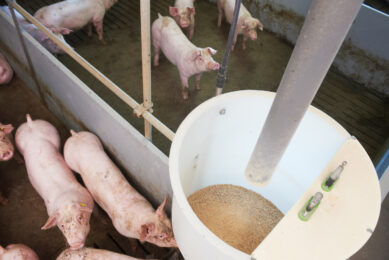Project to help cut reliance on soya
A major project is investigating how Distillers’ Dried Grains with Solubles (DDGS) can help reduce the livestock industry’s reliance on imported proteins including soya.
Known as the ‘ENBBIO LINK project’, it will assess both the environmental and nutritional benefits of bioethanol co-products. BPEX is one of 25 industry and academic partners investing in the collaborative three-year project which started in October 2010. It is sponsored by Defra through the Sustainable Livestock Production LINK programme.
Reliance on imported soya as the main protein source in the pig industry has recently raised environmental concerns relating to land use change and, specifically, the release of carbon from cropping of high carbon stock soils.
BPEX environment project manager Anna Davis said: “DDGS provides an opportunity to supply the UK feed industry with large quantities of a consistent and high quality co-product which could have a positive impact on energy and nutrient utilisation and, at the same time, reduce levels of imported proteins.
“This would, in turn, help pig producers manage their feed costs more effectively in the long term.”
The goal of replacing imported feedstuffs, including soya bean meal, requires optimisation of all the manufacturing processes to ensure maximum nutritive value.
The project aims to:
- quantify sources of variability in DDGS
- identify opportunities to enhance its value
- consider the nutritional implications of innovative processes to reduce fibre content
- quantify the contribution of the co-products to the overall GHG balance of UK crop, livestock and ethanol production.
Home-produced DDGS can come from several different sources including the bioethanol and drinks industries.
The research is being carried out by ADAS, Nottingham University and Manchester University and four divisions of the AHDB are involved with the project: BPEX, HGCA, DairyCo and EBLEX.
For more details and a full list of project collaborators, click here











